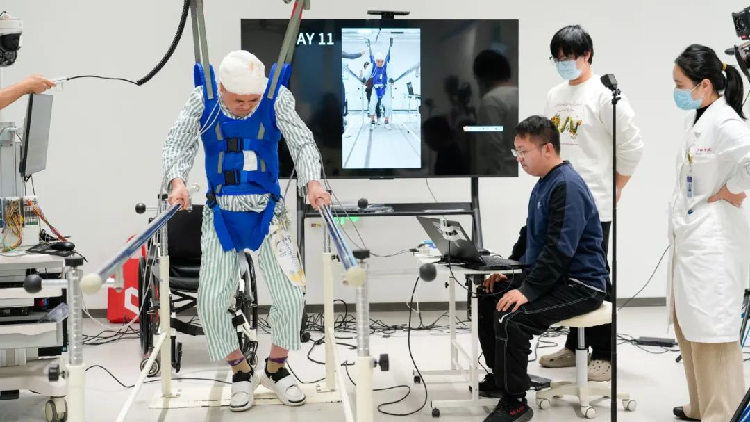In a move that could reshape the future of human-machine interaction, China has successfully implanted its first brain chip, signaling a technological leap that positions it as a key player in the global neurotechnology race. The development not only challenges the dominance of Elon Musk’s Neuralink but also sets off conversations about the medical, ethical, and geopolitical implications of brain-machine interface (BMI) technology.
With the debut of this brain chip China technology, the landscape of neuroscience, artificial intelligence, and biotechnology is shifting rapidly.
Understanding the Brain Chip Breakthrough
Brain chips—also known as brain-computer interfaces (BCIs) or neural implants—are devices embedded in the brain to facilitate direct communication between neurons and external computers. This technology can allow humans to control machines with thought, restore lost motor functions, and potentially enhance memory or cognitive abilities.
While Elon Musk's Neuralink has captured global headlines for its BMI prototypes and clinical trials in the U.S., China has quietly made substantial progress. The new chip reportedly includes flexible electrodes and wireless data transmission, and has been implanted in a human patient to test its compatibility and functionality.
The clinical trial, led by a research consortium including top Chinese universities and biotech firms, aims to explore the chip’s potential to help individuals with paralysis or neurological disorders.
How China’s Brain Chip Technology Differs
Unlike Neuralink, which focuses on high-bandwidth brain interfaces for consumer-grade enhancement and AI symbiosis, China’s initial focus appears more therapeutic and state-led. The brain chip China technology emphasizes:
- Medical Rehabilitation: Helping stroke survivors and patients with neurodegenerative conditions regain communication or motor skills.
- Scientific Research: Understanding brain activity with real-time data streaming for academic neuroscience.
- Ethical Oversight: China has initiated a national committee to ensure the ethical governance of brain technology trials, an area that remains controversial globally.
According to preliminary results, the chip has demonstrated the ability to record and interpret brain signals without significant side effects, marking a major step in the localization of cutting-edge neural engineering.
Why This Signals a Geopolitical Shift
The global BMI race isn’t just about science—it’s about power. Technologies that allow direct brain-machine communication have potential military, economic, and strategic applications.
1. National Digital Sovereignty
China’s domestic success in brain chip technology helps reduce its reliance on Western neurotech firms. This ensures strategic control over highly sensitive data—neural activity is arguably the most personal data type.
2. AI Synergy
China is investing heavily in AI and big data. The integration of brain signals with AI interpretation opens up new avenues in adaptive learning, smart prosthetics, and even AI-augmented thought communication.
3. Regulatory Leadership
China is proactively setting standards and frameworks to govern the ethical and clinical applications of brain chips. This may offer it a soft-power advantage in defining global norms—similar to what the EU did with GDPR for data privacy.
Potential Applications of Brain Chip China Technology
While the initial use cases remain medical, the broader implications are enormous:
A. Healthcare
- Restoring speech or limb control in patients with ALS, paralysis, or brain injuries
- Monitoring and treating epilepsy, depression, or Parkinson’s disease
- Enabling closed-loop neural stimulation to reduce chronic pain
B. Education and Productivity
- Real-time neurofeedback to improve focus and cognitive performance
- Brain-to-brain communication prototypes for collaborative environments
- Personalized learning environments based on mental state tracking
C. Military and Defense
Though not publicly acknowledged, military researchers worldwide are exploring BMI for pilot assistance, memory enhancement, and mental control of unmanned systems.
These possibilities explain why brain chip China technology is drawing both excitement and concern.
Ethical and Privacy Challenges
As the world races to decode the brain, ethical questions become increasingly urgent:
- Consent and Autonomy: Can patients fully understand the risks of having an implant in their brain?
- Data Ownership: Who owns and secures the neural data collected—patients, hospitals, or governments?
- Surveillance Fears: In countries with weak privacy laws, could brain chips be used to monitor thoughts or behaviors?
China’s move intensifies the debate around how emerging countries will balance innovation with protection of human rights. Experts are calling for international treaties to regulate neural tech—similar to those that exist for nuclear or biological weapons.
Comparison With Neuralink and Other Global Players
CompanyCountryFocus AreasStatusNeuralinkUSAHuman enhancement, AI symbiosisHuman trials in 2024SynchronUSA/AustraliaVascular-based brain interfacesFDA breakthrough designationParadromicsUSAHigh-resolution brain data captureIn developmentChinese BCI TeamChinaClinical neurotherapy, data securityFirst human implant in 2025
The brain chip China technology debut adds competition to what has been a Western-led innovation field. China is also known for scaling technology fast and integrating it with state-driven infrastructure—a model that could accelerate the spread of BMI applications domestically.
Looking Ahead: A Global Neurotech Arms Race?
The next few years will determine whether brain chips remain niche medical tools or evolve into mainstream consumer products. In either scenario, China’s entry changes the equation.
Expect future updates around:
- Brain chip scalability across hospitals and academic centers
- Cross-border collaborations or tensions in brain-data privacy
- Consumer brain-computer interfaces for gaming, smart homes, and education
One thing is clear: brain-machine integration is no longer science fiction. With this successful human trial, brain chip China technology has entered the real world—and it’s here to stay.
Read More






 Saturday, 28-02-26
Saturday, 28-02-26







